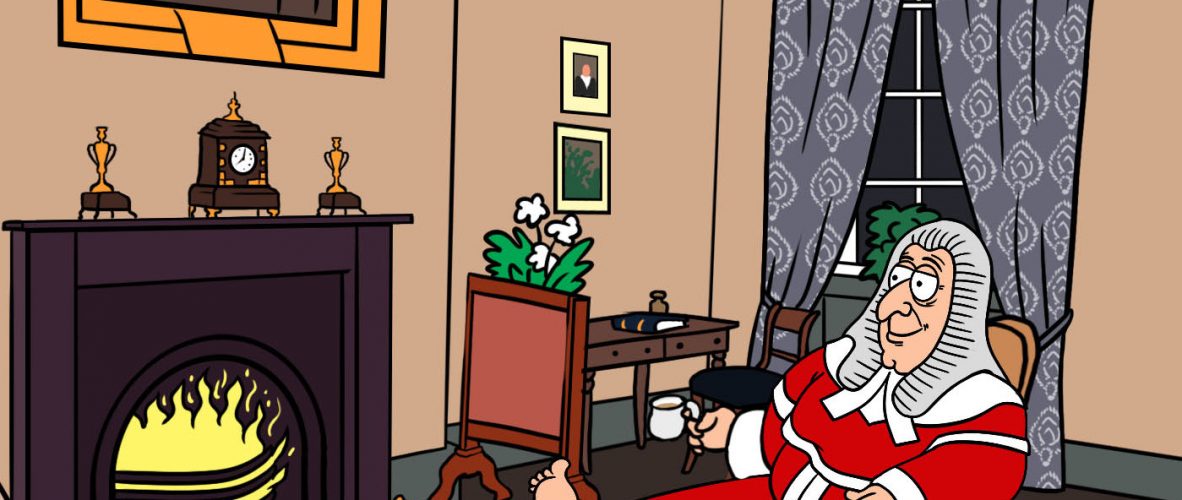The name given to the tight trousers worn by some Regency gentlemen, such as the notorious Beau Brummell and his ‘dandy’ followers, as they showed off their leg muscles.
On Trial The case of the missing underpants
Andrew Cook, 60. was indicted for stealing on the 1st of April, a pair of flannel drawers the property of John Ward of Rhayader.
Mr Clement Jones prosecuted, and explained that the prisoner declined to have the case summarily disposed of by the Magistrates, who had, therefore, no alternative but to commit him for trial at these sessions.
John Ward, a miner and a native of Lancashire, stated that he lodged at Thomas Hope’s, Rhayader, a week and lost a pair of drawers, which he left on a table by his bedside on the morning of the 1st April; he suspected the prisoner of having taken the drawers, as he believed him to be the man who slept in the same room that night; he gave information to the police, and described certain marks upon the drawers, which were now produced, and identified by him as his property.
Sergt Jones of Rhayader, said that from information given him by the prosecutor, who described the drawers to him, he went in search of the prisoner and apprehended him about half a mile from Newbridge, on the Breconshire side; he had previously had a description of the prisoner from the lodging house; on searching the prisoner, he found him, wearing a pair of drawers, which he said were his own property; this was about half past two o’clock on the same day.
Ann Davis, servant to Thomas Hope, lodging-house keeper, at Rhayader, stated that the prosecutor lodged at her master’s house, and was there on the 31st of March; the prisoner also lodged there that night, and slept in the same room as the prosecutor; on the following day, Ward spoke to her about his drawers, when she told him she had not seen them; the prisoner left the house a few minutes before ten; the prosecutor had previously gone to his work.
In his defence the prisoner claimed the drawers as his own property, and said that the prosecutor could not tell their colour before he was shown them by the policeman.
The jury returned a verdict of guilty, and he was sentenced to one month’s hard labour.
The prisoner, who was rather deaf, on being told the sentence of the Court, grunted out, ‘oh’ and was removed.
Hereford Times, 11th April 1868
